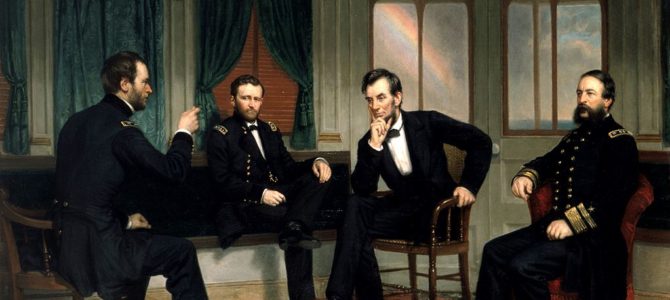
In the sixth lecture of Hillsdale College’s Constitution 101 course (which you can take along with me here), professor Mickey Craig explains how the Founding Fathers built America in such a way that enabled abolitionists to abolish slavery.
America’s founding documents clearly state numerous times that all men are created equal and that all men ought to be viewed as equals in the eyes of the law. Many of America’s Founding Fathers fought to free slaves and abolish the practice in the newborn country — though many of these same men owned slaves themselves. Writing in 1784, Thomas Jefferson, a slaveowner, hoped that all men would soon be free.
I think a change already perceptible, since the origin of the present revolution. The spirit of the master is abating, that of the slave rising from the dust, his condition mollifying, the way I hope preparing, under the auspices of heaven, for a total emancipation, and that this is disposed, in the order of events, to be with the consent of the masters, rather than by their extirpation.
Jefferson also pushed for the Northwest Ordinance, which abolished slavery in the northwest colonies. He also tried (and failed) to abolish slavery in his home state of Virginia, through the legislative process.
Southerners Push For Slavery to Expand
In the 1830’s, after the founding era, southern leaders fought for slavery to continue as a legal practice, arguing that it was good for both master and slave. In 1837, John C. Calhoun said peoples of African descent were lucky to be enslaved in such a civilized society and that their condition in the United States as slaves was better than being free in their homelands.
Never before has the black race of Central Africa, from the dawn of history to the present day, attained a condition so civilized and so improved, not only physically, but morally and intellectually. . . . I may say with truth, that in few countries so much is left to the share of the laborer, and so little exacted from him, or where there is more kind attention paid to him in sickness or infirmities of age. Compare his condition with the tenants of the poor houses in the more civilized portions of Europe—look at the sick, and the old and infirm slave, on one hand, in the midst of his family and friends, under the kind superintending care of his master and mistress, and compare it with the forlorn and wretched condition of the pauper in the poor house.
In his famous “Cornerstone Speech” delivered in 1861, Alexander Stephens claims slavery was morally acceptable because enslaved people belonged to a race that was inferior to the white race. Stephens, who went on to become the vice president of the Confederacy despite initially objecting to succession of the South, said the dispute between the two regions of the country boiled down to their disagreement over whether slavery should remain legal.
The substratum of our society is made of the material fitted by nature for it, and by experience we know, that it is best, not only for the superior, but for the inferior race, that it should be so. It is, indeed, in conformity with the ordinance of the Creator. It is not for us to inquire into the wisdom of his ordinances, or to question them. For his own purposes, he has made one race to differ from another, as he has made ‘one star to differ from another star in glory.’
These ideas contradicted how the Founding Fathers viewed men — as equals. America was built upon the notion that inequality and injustice were violations of natural law. Their case for revolting against England was because the crown perpetuated a long train of abuses that infringed upon these rights.
States Have No Constitutional Right to Exit The Union
These leaders fought for a state’s right to secede from the Union, arguing that the federal government proceeded from the states. They said the federal government existed only because the states lent it power. These southern thought leaders understood that their defense of slavery broke with the views of America’s Founding Fathers.
In one of his numerous defenses to keep the Union together, Abraham Lincoln wrote that states did not posses the constitutional right to withdraw from the union or ignore federal law. He argued that the Union existed before the Constitution itself, as the Articles of Confederation and the Declaration of Independence were written with input from all 13 colonies. Therefore the Constitution, which formed the federal government and the basis of our democratic republic, was formed on the basis of all of the states being bound together.
Despite a bitter Civil War, Lincoln was able to hold the Union together because of the way the Constitution was drafted and structured our federal government.









